
The Four R’s
The Four R’s are the foundation of our philosophy at Camp Champions.
We believe every child has an inner Champion, and we create a loving community in which every camper can flourish.
Whether they realize it or not, we push every camper to grow in character skills like independence and confidence while they are at camp. And because there is an important niche in our community for every camper to fill, we are consistently told that our campers are free to discover “the best versions of themselves.”
The “Four R’s” are the values that we teach every day at camp through our activities, traditions, and role models. We want our kids to grow into true CHAMPIONS in life- to pursue big dreams and make a difference in the world around them. The Four R’s teach our campers how to live with integrity, get excited about serving others, and do the right thing, even when it’s hard.
Your camp has done so much for my son. You have hired the absolute best staff, and my son raves about each person! Your counselors have welcomed my son and made him feel like a rockstar. They have taught him about the 4R’s, and I’m so proud of him! Thank you for your hospitality!
Parent, San Antonio
Why Parents Love Champions
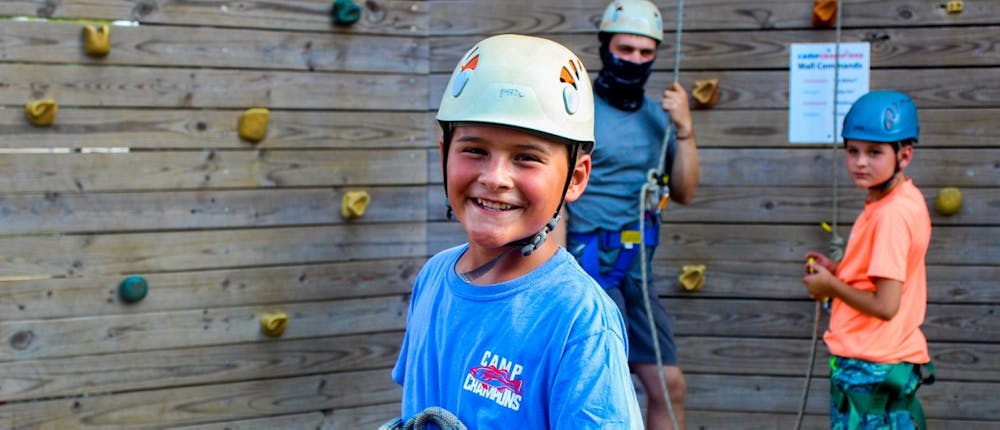
Responsibility
Responsibility at camp starts with campers learning to care for themselves and their living areas. Campers must tidy their cabins daily and clean up after each meal. They can win Inspection and Clean Table Awards for their dedication to these duties, but responsibility at camp goes beyond concerns for cleanliness.
We stress taking responsibility for actions.
We provide clear rules with fair and understandable consequences. We stress fairness and sportsmanship in our activities. These are excellent starting points for younger campers, and we continue to teach older campers responsibility by talking to them about integrity and character.
Ultimately, we want to teach campers that by taking responsibility they can, to a degree, control what happens to them.
For example, if a camper is struggling with a cabinmate, we might ask her what she can do to improve the relationship instead of dwelling on what the other camper is doing wrong. Working with the campers this way reminds each of us that we need to be personally accountable and responsible in all we do.
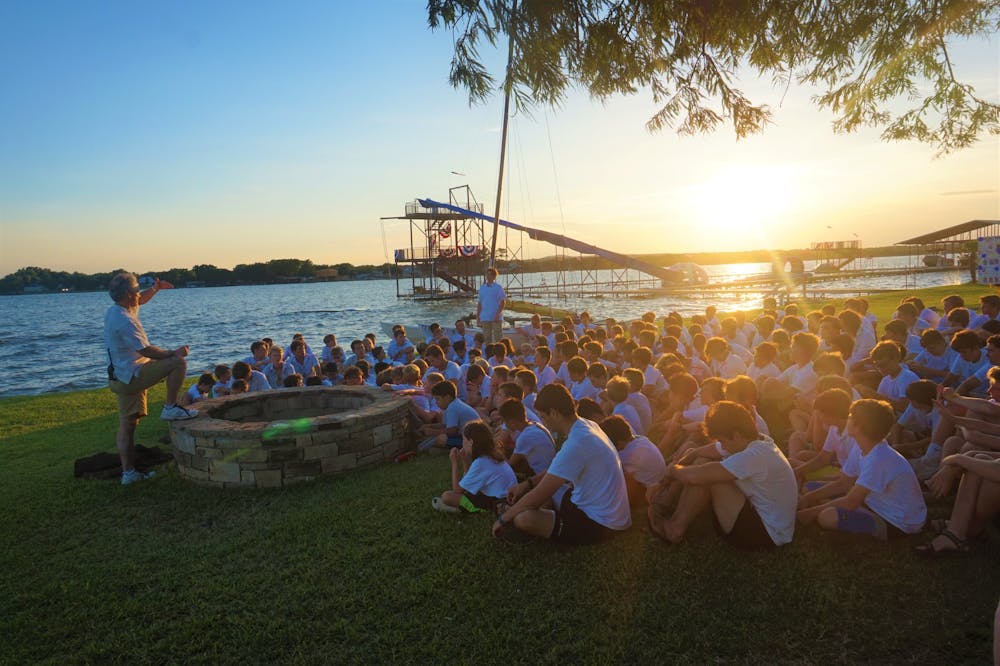
Respect
We want our campers to respect each other, their surroundings, and themselves.
We begin by teaching them our tradition of saying “sir” and “ma’am”. Every camper and counselor is referred to by his or her first name with “sir” or “ma’am” tacked on. For example, our camp owners are Steve Sir and Susie Ma’am. This sometimes strikes parents as an excessively formal or military approach, but our intention is simply to build the habit of respect by verbally expressing it throughout the day.
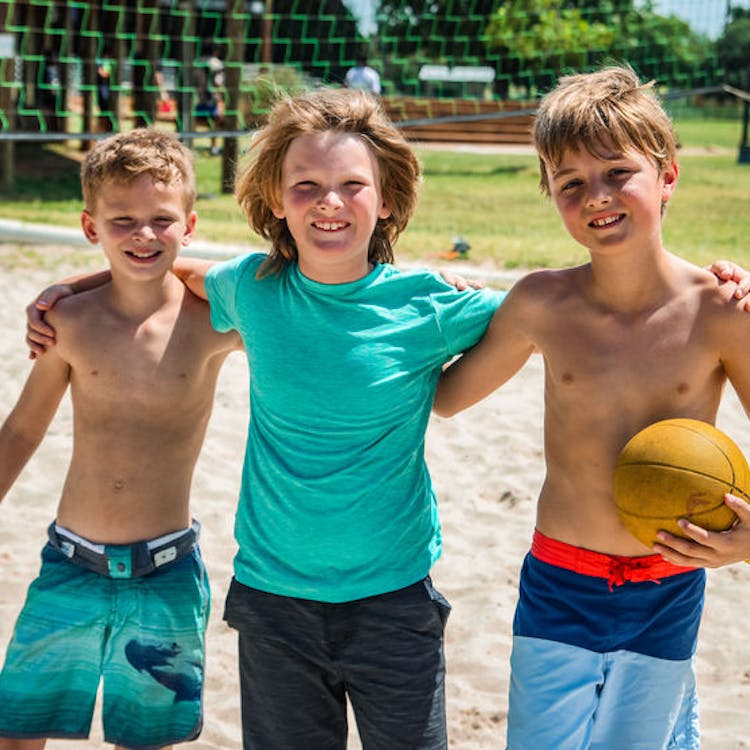
Respect might start with our language, but it continues in all we do. We teach our campers to appreciate and respect the world around them. We help them with their listening skills (which is important when you are in a cabin of 12). We emphasize respect for competitors.
We believe that each camper is glorious and has a special life to lead.
We hope that by believing this about all campers and showing them continuous respect, they will believe it about themselves. When this occurs, they learn self respect.
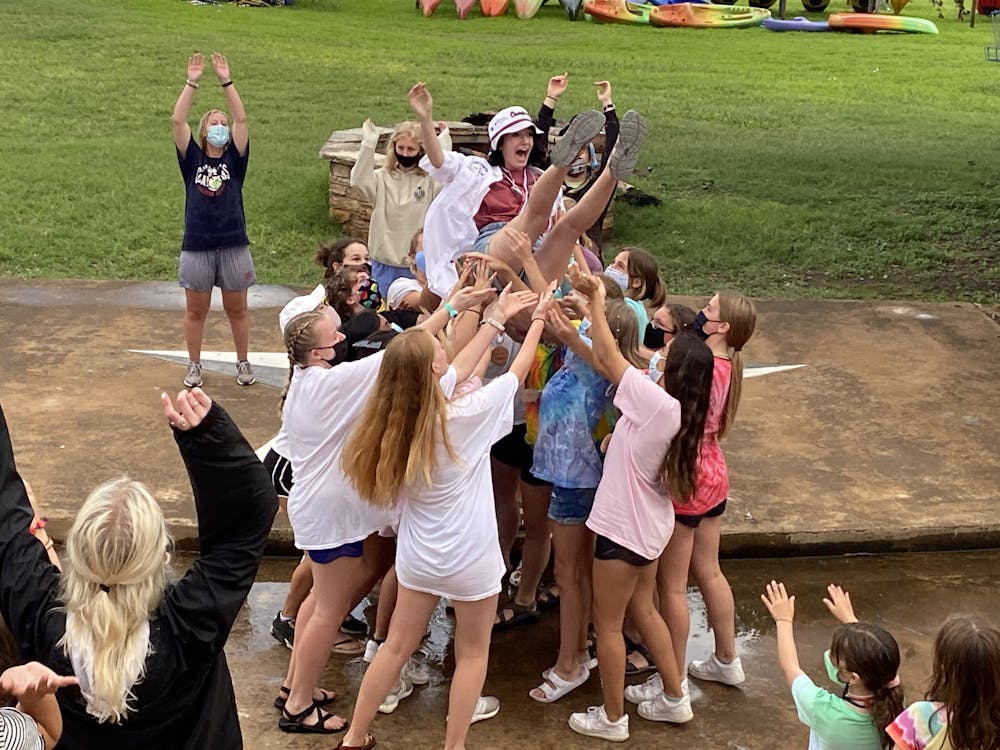
Reaching Out
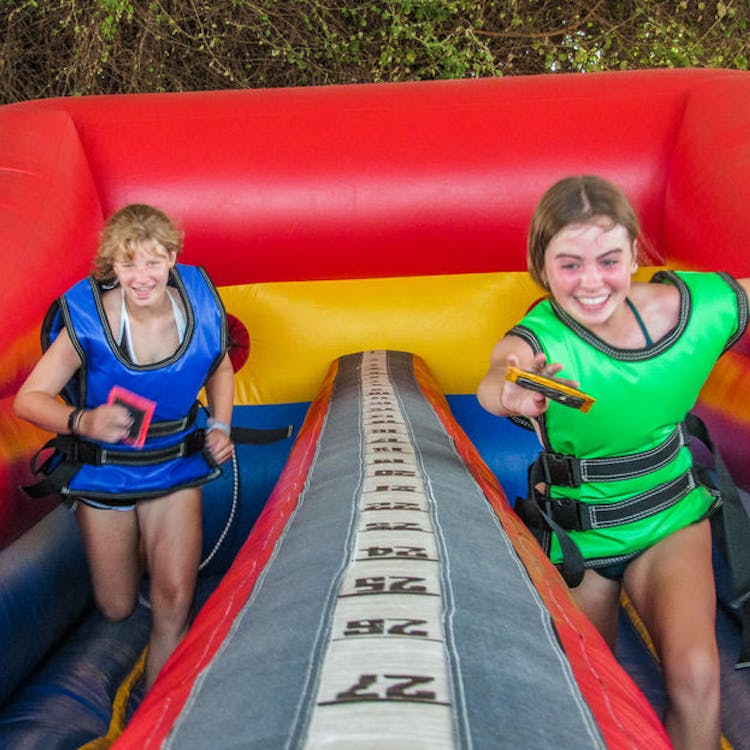
Reaching out is one of the cornerstones of the community we have built at camp.
We teach campers to help and encourage each other throughout the day.
A boy who knows how to ride a horse or a girl who knows how to ski can do a lot to pass on that skill to a cabinmate. Campers can also help each other with the cabin’s responsibilities during inspection and meal cleanups. Our High School Leadership Program is designed to teach the older campers (those going into 10th-12th grade) to work with younger campers as mentors and leaders.
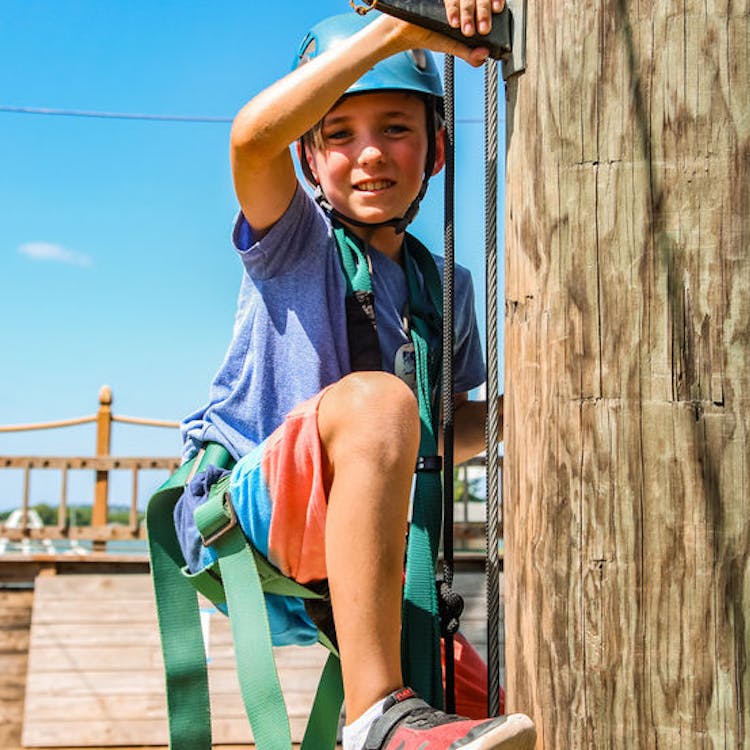
An important focus at the beginning of each camp term is reaching out to new campers to integrate them into the camp community. Veteran campers do this by helping first time campers learn camp lingo, traditions, and showing them around the camp property. Our counselors implement the “buddy system” to encourage returning campers to reach out to new campers who are still learning about camp life.
We believe in the power of reaching out to others—it is our observation that people who give readily to others are also those who live the fullest and most joyous lives.
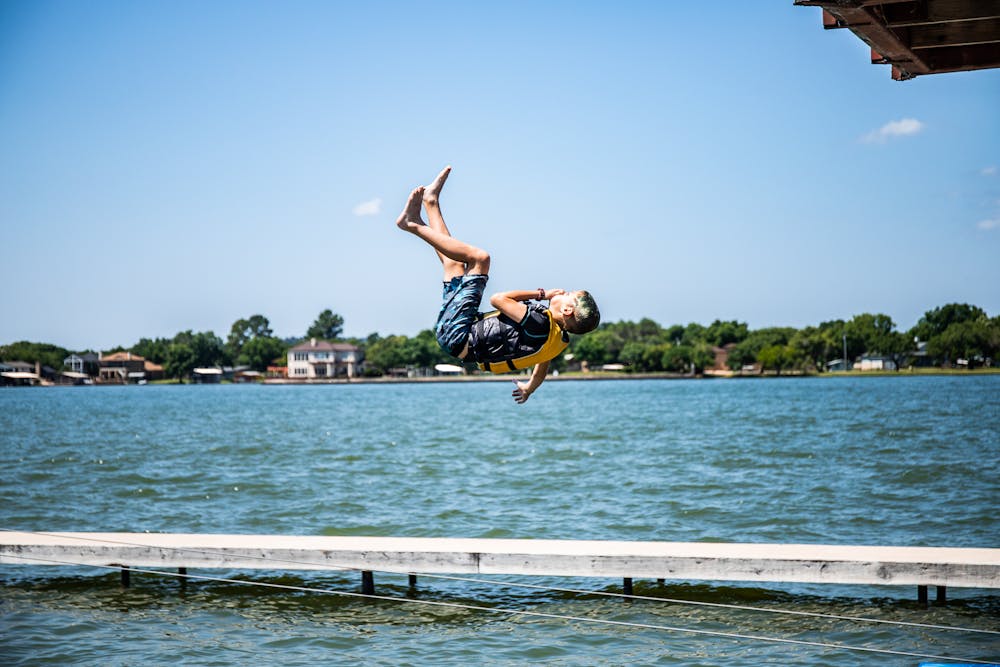
Reasonable Risks
In noted child psychiatrist Dr. Lynn Ponton’s excellent book, The Romance of Risk: Why Teenagers Do What They Do, she asserts that teenagers are “wired” to take risks and that this is a natural part of developing risk assessment skills.
The challenge for parents and educators is to encourage “healthy risks.” Dr. Ponton distinguishes between healthy risks (e.g., trying out for a team, performing music in front of an audience) and unhealthy risks (drinking, extreme dieting, etc). We recognize that camp is an ideal environment for taking healthy, reasonable risks.
At camp, we provide challenging, but safe, risks for all ages of campers. For a first time camper, simply coming to camp and having fun away from home is taking a risk. Scaling our climbing wall is another great example. Being 30 feet up can be a little scary, but it’s perfectly safe.
For older campers, we focus even more on these challenges. Our High School Leadership program is designed to challenge and stretch our campers. We want them to spend time out of their comfort zone, but to do so in a safe and healthy way. This is Susie Ma’am’s favorite “R”, because it leads to the most excitement and growth.